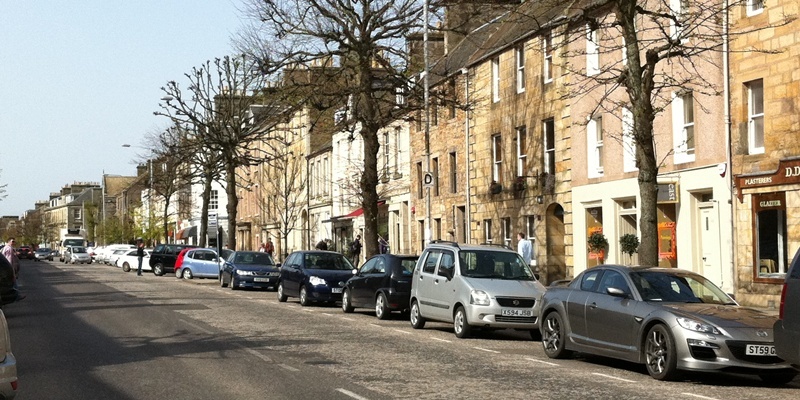The president of St Andrews University Students’ Association has urged students ”not to give up hope” of finding accommodation in the town.
Patrick O’Hare was commenting after university authorities confirmed they have initially been unable to accommodate 535 students who have applied to return to university halls an increase of 155 on the numbers who faced a problem this time last year.
As reported by The Courier, a continual shortage of accommodation in the St Andrews private sector, the high prices of rents in the town overall and a perceived lack of financial support to offset the burden of housing costs have caused increasing frustration among St Andrews students.
However, the prospect of the largest ever overall number of applications to St Andrews University for next year a rise of 17% has sparked fears student housing pressures in St Andrews are only going to get worse.
Now, a student protest group, Lobby the Principal, has been established on Facebook and aims to put pressure on the university authorities.
Student protest organiser Tamara Stupalova attended a meeting last week to discuss accommodation issues with university officials and she said the sense of anger from students was ”almost tangible”.
A university spokesman said: ”The University of St Andrews provides accommodation for at least half of all our full-time students. Proportionately, no other UK university provides more directly managed accommodation. We also try to guarantee a place in halls to all our new entrant students.
”Last year we accommodated 1,950 entrant students and this year we have calculated we must plan to accommodate 2,090 entrants. This is because of the very real risk of volatility and an increase in uptake on offers of places for entry 2012 in this year of very significant upheaval across the sector, even although we have significantly reduced the number of offers we have made to new students who have applied to study here.
”We absolutely reject any claim of miscalculation. It is utterly groundless. Our entrant students aside, approximately two out of every three undergraduate students who applied to stay in university accommodation as returners have been successful. Over 1,000 of the 1,588 who applied have been assured of a place in halls. We have advised a further 535 students, however, that we cannot at this point guarantee or offer accommodation. This is approximately 155 more than last year at this point in the process.
”We are hopeful that as the position with our entrant numbers becomes clearer over the next few weeks, we will be able to offer more places in halls to some of the 535 students whose applications to return to university accommodation we have not initially been able to accommodate.”
The spokesman added: ”We are acutely aware of the stress and concern experienced by some students whose applications we have not yet been able to accommodate. We are committed, however, to working closely with our students and colleagues in the students’ association to offer advice and assistance and to do our best to find all our students suitable accommodation.”
Mr O’Hare said he was satisfied the university admissions office was doing its best to resolve student concerns. He said the university had a responsibility to manage admissions but this had to be balanced with managing student expectations. It was his view the university needed to re-examine its strategy to ensure this did not happen again.
Last year, St Andrews student leaders hit out at new housing legislation which they claimed would make it even harder to find suitable and affordable accommodation in St Andrews. The Scottish Parliament handed power to local authorities to refuse licences for houses in multiple occupation (HMOs) if they feel there are too many in a particular area. The town has a particularly high concentration of HMOs rented by its large student population and in parts there are far more student flats than other types of housing.
The proliferation has led to contention in the community, with complaints from permanent residents about anti-social behaviour and poorly maintained properties. Many locals are also concerned that they have been pushed out of the local housing market.
